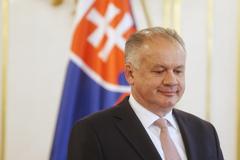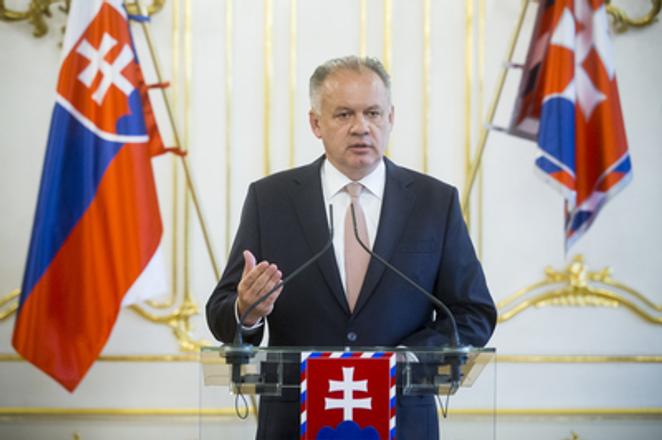Mostly the voters of newly-established parties Progresívne Slovensko (Progressive Slovakia) and Spolu (Together) want to see President Andrej Kiska remain in politics after he leaves the presidential post later this year.
More than 60 percent of Progressive Slovakia voters and nearly 70 percent of Spolu voters support him, according to a poll carried out by the Focus agency for private broadcaster TV Markíza on 1,013 respondents.
On the other hand, the voters of ruling parties Smer and the Slovak National Party (SNS) want Kiska to leave. The poll also suggests that about one-fifth of far-right Kotleba – People’s Party Our Slovakia (ĽSNS) would not stand Kiska in politics.

More than 13.6 percent of respondents absolutely support Kiska, while more than 21 percent somewhat agree he should stay in politics. On the other hand, 24 percent of respondents support Kiska’s departure from politics and nearly 35 percent clearly said they want him to leave.
Trust is dropping
The poll’s results reflect the trend of the previous polls measuring the trustworthiness of politicians, political analyst Pavol Baboš told the Sme daily. While in January 2018, 53 percent of respondents trusted Kiska, in September 2018 it was only 41.3 percent.
“Kiska’s trustworthiness in the polls has been gradually falling, with the biggest drop being observed after [Ján] Kuciak’s murder,” Baboš said, as quoted by Sme. “This is why it is not surprising that 35 percent of people want him to continue in his political career.”
The results cannot be considered as a percentage he would gain in the elections, the analyst continued, explaining that even in the case of Smer politicians, trustworthiness numbers do not translate to real election results.
At the same time, Baboš admitted that the support of Progressive Slovakia and Spolu’s voters is lower than he would expect. Since both Ivan Štefunko of Progressive Slovakia and Miroslav Beblavý of Spolu have been profiling themselves as having opinions close to Kiska, he would expect the support to be between 60 and 70 percent, he added for Sme.
Their support may be affected by the long-term criticism of the president, particularly by Smer’s representatives.



 President Andrej Kiska (source: SME)
President Andrej Kiska (source: SME)